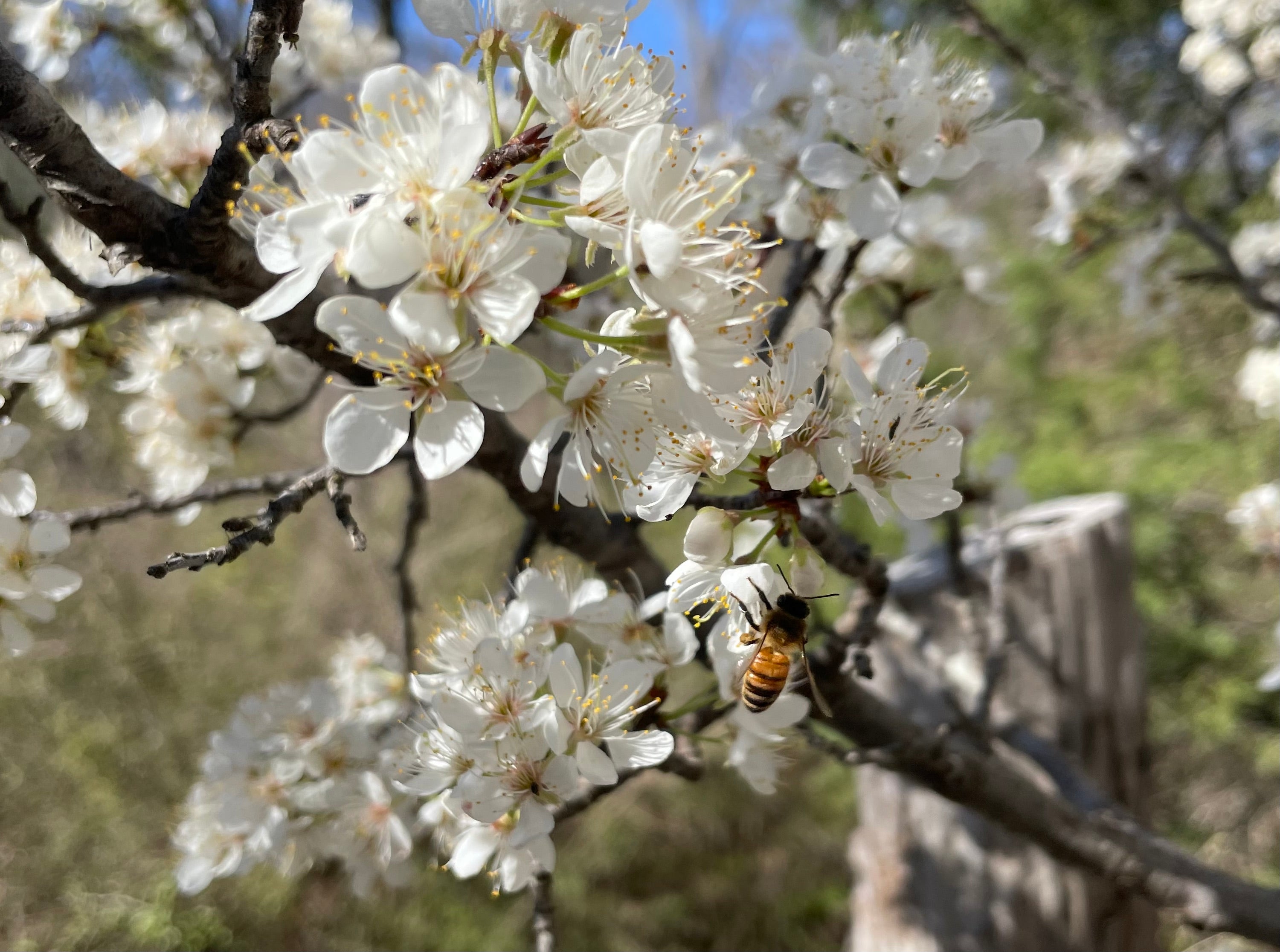Nothing would sting more than a world without bees. Honey bees, both wild and domestic, perform about 80% of all pollination worldwide. Easy to overlook, and impossible to replace, these small workers play a big role in our everyday life.
Following a bee infestation of one of our structures in 2015, we contacted the Texas Bee Association for assistance. A local beekeeper soon came to collect and safely relocate the hive. After the job was complete we had the pleasure of chatting with the beekeeper about his experiences and the growing issues regarding the shrinking bee population. Factors such as harmful pesticides, loss of habitat with urbanization, and global warming are causing the population of bees to decline at an alarming rate worldwide. After learning more about the topic we were inspired and decided to begin a small bee conservation operation on our own farm.
In the beginning North Shore Farm adopted 6 hives, but since then our numbers have more than doubled, now with 12-16 colonies things are buzzing around here! The degree of care required for the bees depends on the time of year and level of activity. We tend to them on a near monthly basis in the less active winter months, and weekly in the spring and summer. It is vital to their success that we monitor their health and check for pests to prevent damage to the hive. In the spring we feed sugar water and set out pollen “patties” to help sustain them until enough flowers are in bloom. Compared to the meticulous care we give our horses, the bees are simpler to maintain— yet still rewarding for our farm’s ecosystem in many ways.
The sweetest part of bee conservation is, of course, the honey! In good years we are able to yield as much as 125lbs to share with friends and family, but we leave the honey comb strictly for the bees. The amount of honey we are able to harvest varies, due to many environmental factors such as the weather. Unfortunately with the unprecedented climate changes in these past years, honey production has been down, but this deficiency pales in comparison to the imminent consequences we face in a world without bees. Bees are responsible for pollenating 70 of the main 100 crop species that feed 90% of our earths population. Not only would severely depleted bee activity effect the global food supply, it would indirectly dismantle 30 billion US dollars worth of the crop industry that depends on honeybees for pollination.
To combat this, little action has been taken by governments but individuals and associations are rallying to make a difference. Anyone and everyone can help by planting pollinator friendly flowers and plants indigenous to their area, as well as being mindful of chemicals used in your yard. As an alternative to synthetic pesticides, fertilizers and herbicides; we have switched to using organic products and natural solutions such as composting manure and purchasing beneficial insect eggs to sprinkle about our garden. Like the bees, we believe that by working together big things can get accomplished and we are happy to do what we can to get to a place of sustainability.

